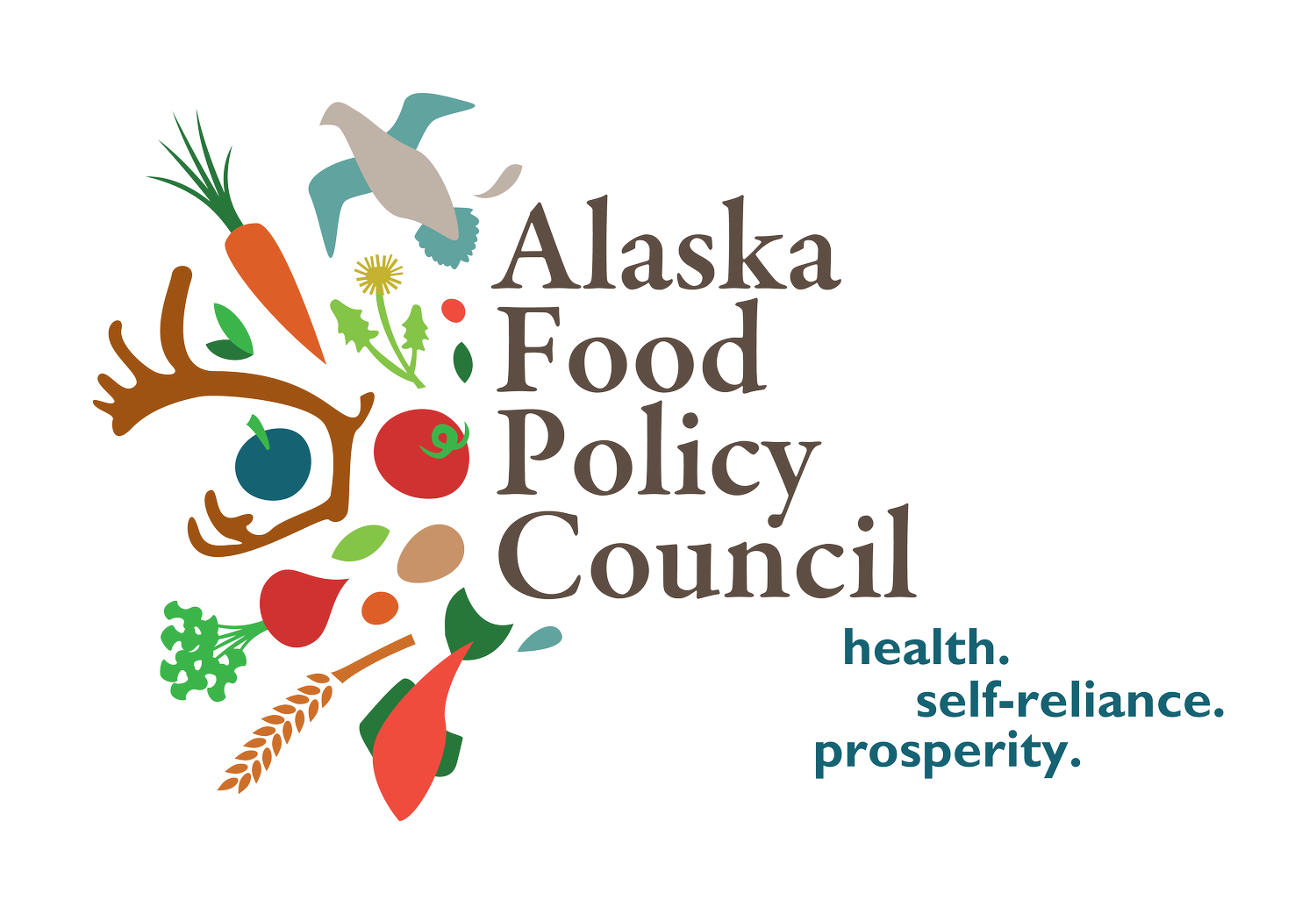2024 Spring Sustainable Southeast Partnership Retreat AFPC Recap
By Colin Peacock: Regional Food Business Center Co-Director, AFPC and
Ron Meehan: AFPC Board Member & Director of Government Affairs, Food Bank of Alaska
AFPC Board Member Ron Meehan and Regional Food Business Center Co-Director Colin Peacock
Ron Meehan and Colin attended the 2024 Sustainable Southeast Partnership (SSP) Retreat in Sitka last month! The SSP is a dynamic collective that fosters cultural, ecological, and economic resilience across Southeast Alaska by coordinating diverse skills and perspectives. Each spring they host a retreat to strengthen relationships and connections between people and communities. This year, the retreat convened more than 150 people from a multitude of organizations and communities throughout Southeast Alaska to discuss building sustainability for the future of the region, including food security.
This marked Ron's second year attending the retreat, and it yielded impressive growth for the Alaska Food Coalition and Food Bank networks. He came well-prepared, armed with many copies of our annual report and stickers, which we both distributed freely. For Colin, who had been active in SSP during the year he started Salt & Soil Marketplace, it was a fantastic opportunity to reconnect with the movers and shakers of Southeast Alaska – the very people who helped him build his own network back in the day. New connections were forged, and groundwork was laid for many potential future projects in Southeast Alaska – that's the essence of these retreats. You build relationships within the network through their monthly online Hangouts, and these larger regional retreats provide a platform for in-person collaboration and growth. Additionally, smaller, focused retreats like SSP Catalyst events tackle more local or specific subjects, such as food security. Learn more about SSP and their upcoming events by checking out their recent newsletter!
The food security table considers future scenarios. Photo credit Sustainable Southeast Partnership.
Over the course of the three days, we toured Pacific High School and learned about their gardening education program, had dinner on the water during a whale-watching tour, and collaborated with SSP catalysts in the region to identify food security threats and opportunities. One thing was clear: there is tremendous interest in food sovereignty, innovations such as hydroponics, and ensuring the region has access to affordable and culturally appropriate food. They are enthusiastic to continue working with partnered organizations and communities to grow the momentum from the retreat moving forward.
One of four scenarios. Each scenario was meant to be balanced between good and negative outcomes, and contain plausible elements, but was not meant to be a likely future.
The core group activity involved a collaborative exploration of four hypothetical scenarios for Southeast Alaska's future. This activity aimed to facilitate region-wide future planning. Each table, comprised of roughly eight participants, focused on a specific area, ranging from mariculture and regenerative economies to forestry and fisheries. Our group centered on food security, and we dug deep into the possibilities as we examined the potential impacts on the food system under these scenarios. We considered how factors like increased climate change migration and enhanced native sovereignty within the state might affect food access. While the scenarios were ultimately discarded as generative tools, they served as a valuable springboard for generating ideas grounded in potential future realities.
The objective of the exercise was to comprehensively plan for a wide range of potential future scenarios that Southeast Alaska might encounter. This process aimed to identify areas with the greatest potential for change. Subsequently, we pinpointed actions that addressed each of these areas such as wild and subsistence gathering, workforce development, etc. These actions were then categorized based on their impact (high to low) and effort (high to low). This systematic approach provided a clear roadmap for actions that could positively influence Southeast Alaska's future, regardless of the specific scenario that unfolds. SSP's food security catalyst, Jennifer Nu, facilitated the process and documented our outcomes.
Ron and Colin with Ecotrust Executive Director Rhonda Rutledge and Senior Director of Coastal Communities Jon Bonkoski.
Colin had a great time talking about specific food security projects with Erika Merklin who is starting the Lynn Canal Food Web, Robert Venables of Southeast Conference, and the whole Ecotrust team. Everything from food hubs in Haines, cold storage on the Marine Highway system, and how community cold storage seems to solve many of our food system woes. There is a lot that happens when you get the right people in the room who have already worked on building relationships over the past 7 years together.
Following the retreat, Ron traveled to Ketchikan to meet with current and potential partners of the Alaska Food Coalition including the Ketchikan Indian Community, Community Connections, Rendezvous Senior Services, Ketchikan Public Health Center, Southeast Senior Services- Ketchikan, Ketchikan Borough School District, Residential Youth Care, First City Homeless Services, and the Salvation Army of Ketchikan. The trip yielded the addition of more than 15 new partners to the Alaska Food Coalition!
Photo courtesy of Southeast Sustainable Partnership.









